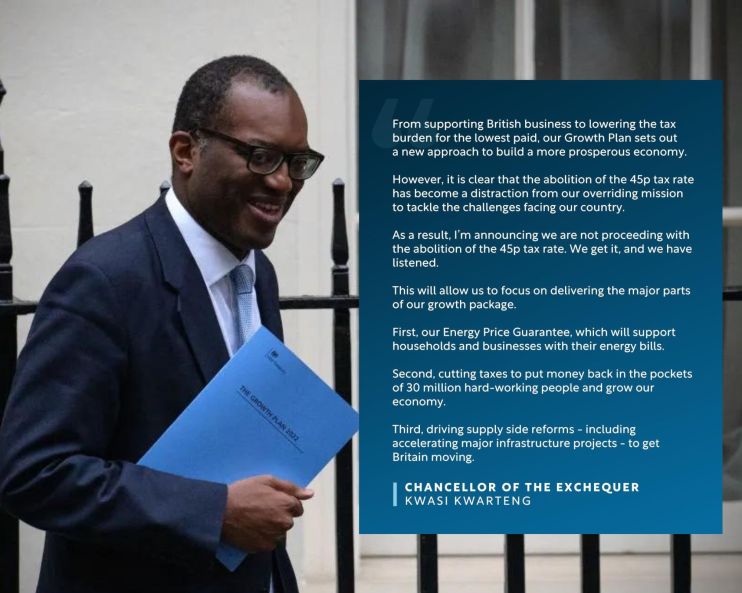Kwarteng to U-turn on scrapping 45p tax rate: ‘We get it – we have listened’

Chancellor Kwasi Kwarteng will U-turn on scrapping the 45p tax rate amid opposition from his own MPs and former ministers.
The government is to row back on the policy following vocal opposition from former cabinet ministers Michael Gove and Grant Shapps.
On Sunday, the Prime Minister said she was “absolutely committed” to the policy.
Posting a statement on social media this morning, Kwasi Kwarteng told critics, it is , “clear that the abolition of the 45p tax rate has become a distraction from our overriding mission to tackle the challenges facing our country.”
As a result, I’m announcing we are not proceeding with the abolition of the 45p tax rate. We get it, and we have listened.”
This will allow us to focus on delivering the major parts of our growth package”, including the Energy Price Guarantee, “cutting taxes to put money back in the pockets of 30 million” people, and “driving supply side reforms”.
This comes after former ministers, including Michael Gove said the policy was “not Conservative” and wouldn’t be passed in the Commons, while Shapps wrote in The Times, saying the policy was “politically tin-eared.”
The former transport secretary said it represented “big giveaways to those who need them least”, and that amid the cost of living crisis, “when pain is around, pain must be shared.
“This politically tin-eared cut, not even a huge revenue raiser and hardly a priority on the prime ministerial to-do list, has managed to alienate almost everyone, from a large section of the Tory parliamentary party taken by surprise to the City traders who will actually benefit. Why? Not least because it is being paid for with borrowed money, the repayment of which is as yet unexplained.”
The Conservative Party under Liz Truss has plummeted in the polls since the mini-budget, with YouGov suggesting Labour has a 33 point lead.
Markets reacted with volatility as Kwarteng met business leaders and big banks last week in a bid to reassure them of his policy, as the pound neared parity with a strong dollar.
